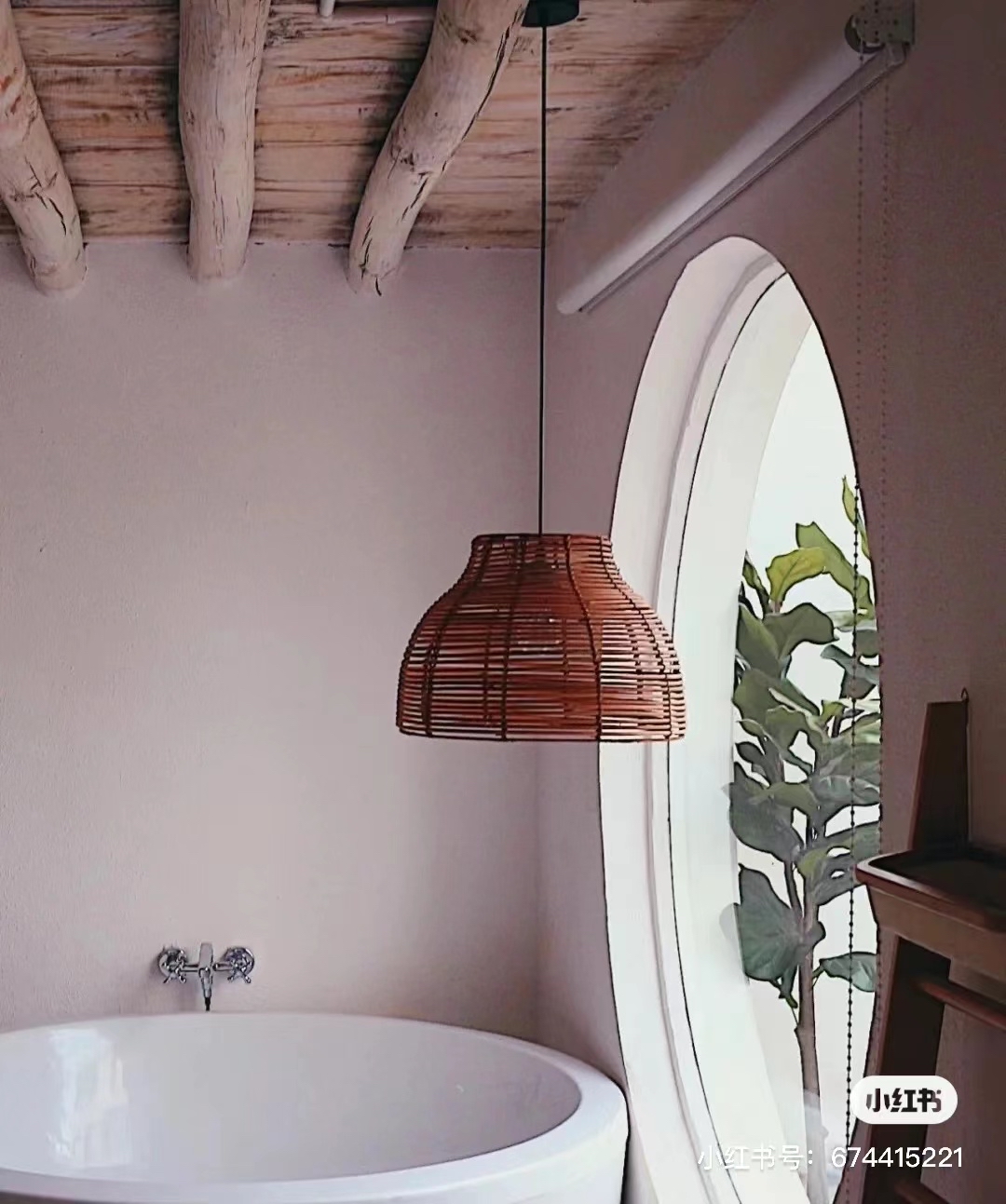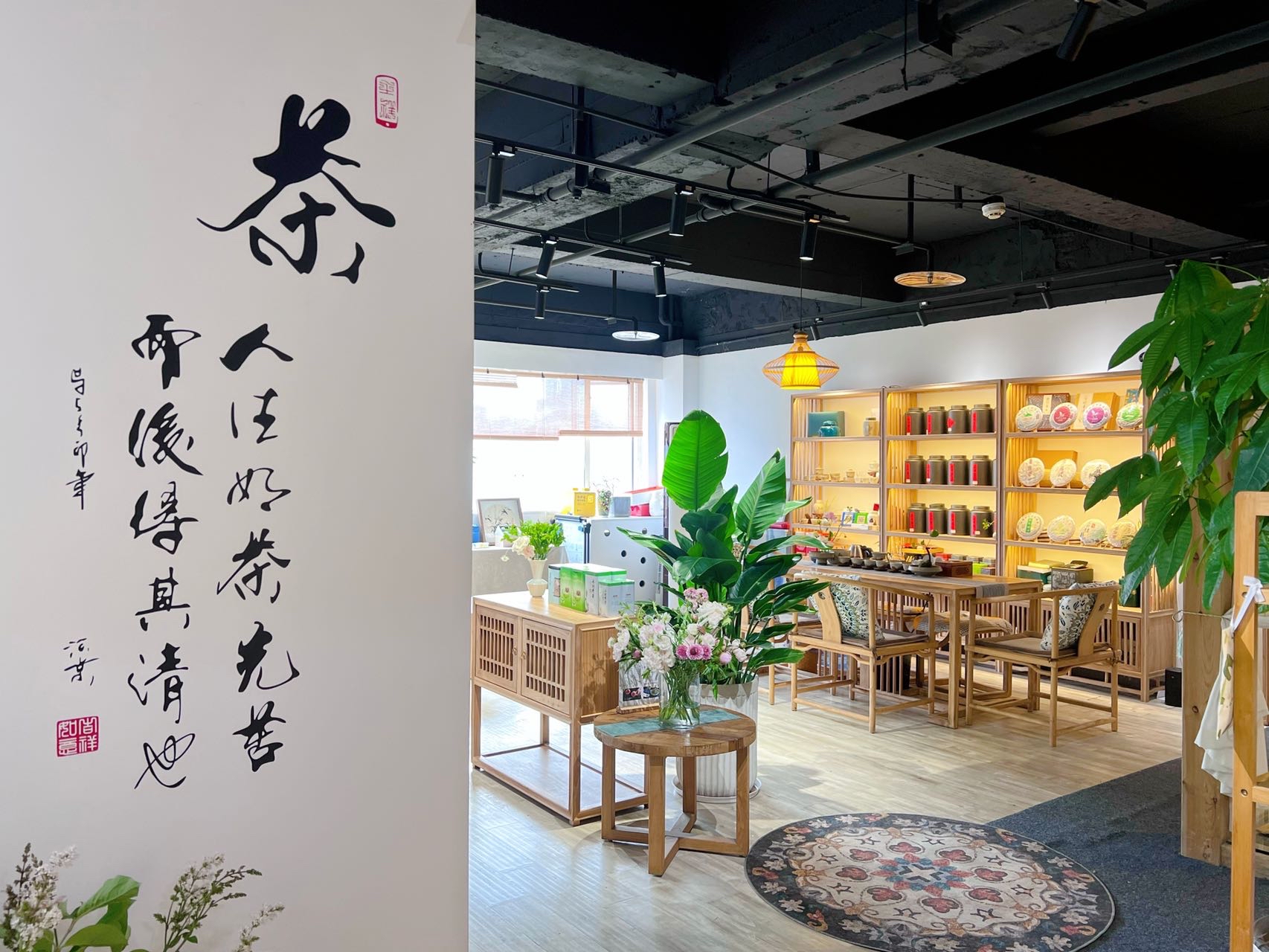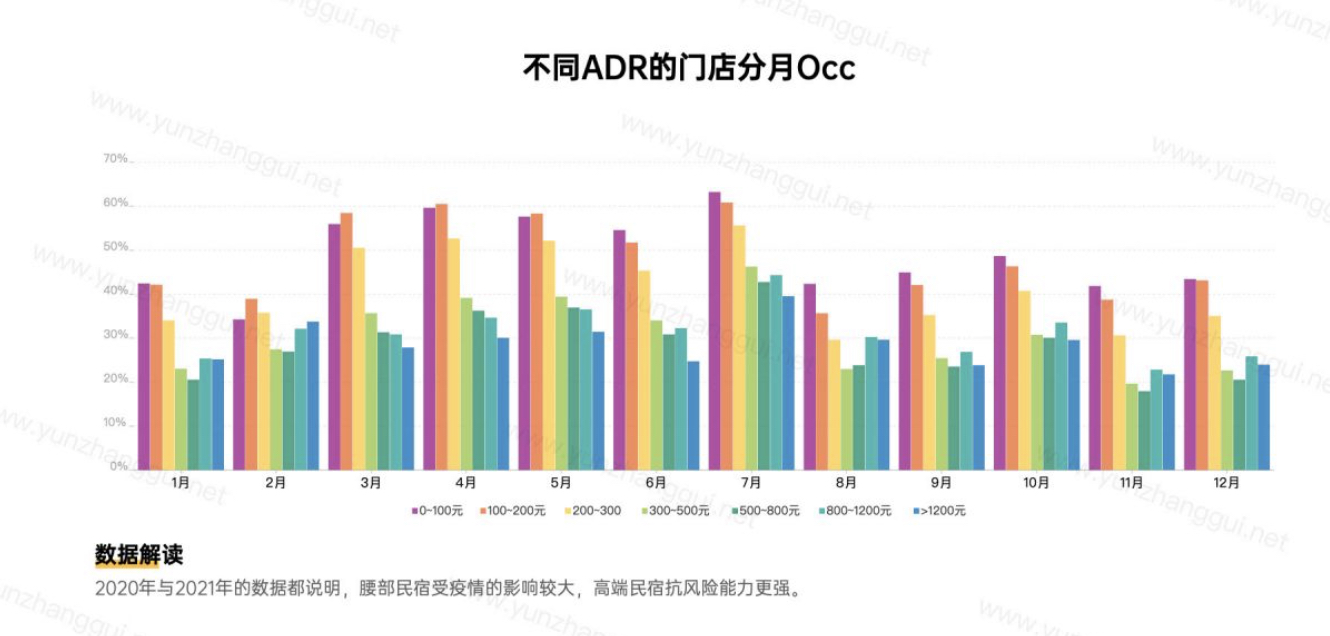Some homestays suffered the "life" of camping in the leather homestay on May 1 ST "full refund of orders"?
According to the data center of the Ministry of Culture and Tourism, during the five-day "May Day" holiday, there were 160 million domestic tourists, and the domestic tourism revenue was 64.68 billion yuan, a year-on-year decrease of 42.9%. One of the major characteristics is that the leisure space of urban residents in the main tourist source areas has shifted from the city to the surrounding areas, and homestay vacations and country camping have become the mainstream of the market.
Relevant data show that compared with camping during the May Day holiday, the operating data of B&B is not as good as before. The Red Star journalist learned that near May Day, affected by the epidemic, some homestays in various places have unsubscribed. For example, the overall unsubscribe volume of May Day in Yanqing, Beijing is about 25%, while that in Pinggu is 30%-40%.
"Sunrise in the east and rain in the west." When the operation of B&B encounters a bottleneck, the camping economy has a strong momentum. For a time, camping "changed the life of the hotel" and became a new concept of business. Where does the resistance come from behind the difficult operation of homestays? Under the dual background of epidemic impact and industry renewal iteration, where is the breakthrough of hotel management turning losses into profits? With all kinds of questions, Red Star journalists talked with many B&B operators, industry insiders and the president of B&B Association in order to find the best answer.
During the May 1 ST period, some hotel operators encountered "full refund of orders"
"The B&B I run started business in 2019, and the time started almost simultaneously with the epidemic." Yanyan (a pseudonym), who lived in Dali, started to run a homestay with friends three years ago. In the initial stage, the income of this homestay was not bad, but in the past year, Yanyan has been unable to make ends meet.

▲ Photo of the B&B operated by Yanyan Photo courtesy of the interviewee
Yanyan told the Red Star journalist that in April 2019, the turnover of her homestay was acceptable and she could receive orders of more than 100,000 yuan. However, after the epidemic, the operation faced difficulties.
This is not the difficulty of Yanyan alone. Li Haizhong, president of Dali Inn Association, pointed out at the Chamber of Commerce of the 2022 Spring B&B Situation Meeting held on April 29th that the booking volume of Dali during May Day was basically 30% to 40%. However, due to the previous outbreak, only 10% of the bookings were made. 60% of the homestays around the ancient city are closed, and many homestays are being transferred at low prices.
The cold winter of B&B operation is not only a problem in Dali. Han Yongkun, the founder of India-themed Homestay Creative Group, who has many years of experience in homestay management, also pointed out in an interview with Red Star journalists: "There are basically no inter-provincial orders for homestays around May Day, and the booking volume before the holiday is only one tenth of that of the same period last year."
Mr. Zhang, the owner of a hotel in Universal Studios Beijing, experienced the "unsubscribe tide" during the May Day holiday. He told Red Star News that 20 days before the May Day holiday, tourists began to book rooms one after another. By April 24, the hotel was full of rooms, and the booking price was about 50% higher than usual.
However, due to the epidemic situation in Beijing before May 1, all orders for Mr. Zhang’s shop were cancelled.
Mr. Chang, who runs a homestay with friends in Lugu Lake, Sichuan, has plans to find another way out.
Mr. Chang told reporters that in addition to operating a homestay, he also carried out a number of projects such as catering and guided car rental. In the peak season of Lugu Lake tourism in the past, the income of one day could be tens of thousands. However, with the outbreak of the epidemic, since 2020, Lugu Lake tourism has entered the "cold winter", and the operation of the hotel has also been affected.
According to Mr. Chang,Even if there are no epidemic restrictions, tourists’ desire to travel in the peak season has weakened a lot. Now, whether it is a car rental tour guide project or a hotel and catering, the revenue is basically less than half of that before the epidemic.However, the rent and labor costs have not decreased. Mr. Chang said that the local government has given a certain degree of subsidies, but they still face certain difficulties in the current operating costs.
A homestay owner who survives in the cracks
Transforming and developing "secondary production" has become an inevitable choice.
Sebrina, who has been operating homestays in Weizhou Island and Xishuangbanna, Beihai, Guangxi since 2016, has also faced difficulties in operating homestays, but she chose to open up a second industry outside the homestay business in order to reverse the situation. Relying on the tea factory resources accumulated during the operation of the B&B in Xishuangbanna and the accumulated experience of holding shares in tea shops, Sebrina opened his own tea room in Chongqing at the beginning of this year, which opened up a tea space while selling tea, and also hosted some tea ware business conference salons.

▲ Sebrina began to study the combination of "teahouse" and B&B for the transformation of B&B.
Sebrina told the reporter that she took over the building shop in an urban tourist area in Chongqing for 50,000 yuan. This attempt made her see hope: from April 1 to 26 this year, the Meituan account in the teahouse was upgraded from an unlisted account to a gold account, and the data growth and monthly operating income of Meituan were also considerable.
But Sebrina still hasn’t given up the operation of the hotel. She told Red Star News that she planned to reorganize the business strategy of the B&B after the epidemic ended, so as to combine the teahouse with the B&B for a longer-term development. "Some people regard the epidemic as a shackle, but perhaps there are opportunities behind it. If you seize the opportunity, difficulties will become opportunities."
In the face of the current business difficulties, Yanyan’s first thought is to improve the standards of her inn, and then adjust the price. But the road to transformation is not smooth sailing. After several months, the above-mentioned business methods did not bring the expected benefits. As a result, Yanyan recently decided to "fill in" other aspects of the operation of the hotel.
After a series of transformations, Yanyan started to build a pet-friendly inn for pet owners, relying on the love of some fans of the Little Red Book platform for cats and dogs in the hotel. However, due to the disagreement with the business philosophy of some shareholders, Yanyan herself re-established an inn in Shaxi Ancient Town, which was only responsible for the platform management and docking of the original hotel.
According to the current plan, Yanyan’s new inn is not entirely based on the online travel agency platform, but turned to private traffic groups represented by "repeat customers" and fans on various platforms. The new inn has also set aside a special work area to make restaurants. "The restaurant will use Yunnan local specialties to make some fusion dishes that young people accept."
Whether this attempt can change the status quo, Yanyan has no definite answer in her heart. But she knows that the best way can be found by constantly tasting and summarizing.
What is the real reason for the hotel’s operation falling into the "cold winter"?
Insiders: The emergence of a large number of homestays has caused serious involution, and camping has squeezed the living space of homestays.
Compared with camping during May Day, the operating data of B&B is not as good as before. According to the Red Star journalist, near May Day, affected by the epidemic, some homestays in various places have unsubscribed. For example, the overall unsubscribe volume of May Day in Yanqing, Beijing is about 25%, while that in Pinggu is 30%-40%.
However, the difficulties in the operation of homestays are not only suppressed by the epidemic.
Han Yongkun believes that,At present, the competition in the homestay industry is very fierce, which is also related to the rapid rise of a large number of homestays in a short period of time.According to Han Yongkun, there were not many homestays before 2015, but after five or six years of development, there are now 5,000 homestays in Dali and more than 200 homestays in camps around Beijing, with numerous competitors and serious involution.
Han Yongkun pointed out that there is a situation of "making money at both ends and losing money in the middle" in the operating status of the hotel industry. According to its introduction, the head homestays across the country are priced at 2,000-3,000 yuan a day, while those taking the middle route are mostly priced below 1000 yuan or even 500 yuan.
"In other words, taking Dali as an example, there are now 5,000 homestays in Dali, but only the top 10 can survive, which means that those priced at two or three thousand yuan can survive, and even a room is hard to find, but those priced at 300-500 yuan may not go even if the price is reduced to 100 yuan."
In January of this year, a room management service platform released the development report of the hotel industry in 2021. The data shows that the waist B&B is more affected by the epidemic, while the high-end B&B is indeed more resistant to risks.

▲ Screenshot of B&B industry report
In Han Yongkun’s view, the road to transformation of the hotel industry will either be the head or the bottom. "Now the B&B industry is losing money at both ends, so the B&B operation can’t take the middle route, and it will be the ultimate."
The Red Star journalist noticed that the survey in the "Big Data Report of Boutique B&B Industry in 2021" released by a marketing management system showed that the chain rate of boutique B&B industry in 2021 was 47.55%, up by 1.58% year-on-year, while the proportion of single-store B&B fell below 50%, and the overall performance of chain businesses was better than that of individual businesses.
At the same time, Tian Li, secretary general of Sichuan B&B Branch, believes that,In addition to the pressure of unsubscribing under the epidemic and the involution of the industry itself, the recent explosion of camping has also squeezed the living space of the hotel."Taking Sichuan as an example, people now choose more high-end homestays in suburbs and low-density areas, and they will also be more inclined to choose to experience camping and experience farms. This has reduced the operating interests of the waist B&B. "
"Camping is not the fate of Ge B&B"
Chairman of the B&B Association: We should not lower the price to survive, but should improve the housing service guarantee.
The explosion of camping economy is supported by realistic data. The "2022 Camping Quality Research Report" released by Ma Honeycomb Platform shows that since March, the camping search popularity of this platform has increased by as much as 75% year-on-year. During the Qingming holiday in April, the search volume of "camping" on Xiaohongshu platform rose by 427% year-on-year. In the same period, the search volume of "camping" nationwide rose by 98% month-on-month.

▲ camping notes in Xiaohong’s book
During the May Day holiday, Red Star journalists also randomly contacted a number of outdoor camping bases in Beijing, Shenzhen and other places, and the other party said that tickets and tents had been sold out. The staff of an outdoor campsite in Wutongshan, Shenzhen suggested booking tickets from Friday to Sunday or during holidays, as far as possible one week in advance.
At the beginning of April, a boutique hotel was hard to find a room, but in the middle and late April, the boutique hotel ushered in a wave of returning orders. Where did the returned order go? Zhang Xiaojun, president of china tourism association B&B Inn and Boutique Hotel Branch, judged: "There should be 80% camping."
So, is the relationship between homestay and camping an iterative one or a symbiotic one in future fusion? Hou Jie, head of the Tang People’s Travel Service, said: "In the long run, we don’t think camping is the life of a homestay." On the other hand, Zhang Xiaojun also pointed out that the new supply will definitely come into being, and homestays can’t stand out. Camping is a luxury, not a building, but a homestay must be built. The two cannot be integrated, but they can learn from each other and learn from each other.
In Zhang Xiaojun’s view, homestay and camping have their own advantages. Homestay has the service guarantee that camping lacks, and camping has outdoor activities that homestay lacks.
Therefore, Zhang Xiaojun suggested that operators should optimize the soft clothes of their homestays and give gifts to their guests. Instead of just lowering the price, they should operate in the opposite direction and increase the price by about 20% to 30% on the original basis after improving the customer’s experience.
B&B is difficult to operate, how to "get out"?
President’s advice of multi-site homestay association
The Red Star journalist learned from the Chamber of Commerce of the 2022 Spring B&B Situation Meeting held on April 29th that the country has provided the B&B enterprises with policy support to solve problems and confidence support to upgrade the market consumption through the introduction of many policies. Zhang Xiaojun said that at present, the Ministry of Culture and Tourism is also drafting the Opinions on Promoting the Development of Tourist Homes, and the Opinions on Supporting the Development of Villagers’ Homes drafted by the Ministry of Agriculture and Rural Affairs has also passed the discussion of the Council of Ministers.
From the local point of view, for example, the Dali government has also introduced a number of supporting projects for B&B. According to Li Haizhong, president of Dali Inn Association, the Dali government launched online business activities and took out more than 10 million coupons for snapping up. The Yunnan provincial government also took out 200 million yuan to stimulate tourism consumption.
However, relying only on financial subsidies and preferential policies is not the key to solving the problem of hotel management. Zhang Xiaojun pointed out that the state and local governments have issued many policies to solve problems for cultural tourism enterprises, but the policies are inclusive policies, and there are almost no policies specifically for homestays. "The policies that fall on the heads of homestay enterprises are not enough to support the homestay industry to cross the business ‘ Winter ’ 。”
Then, where is the exit of the transformation road of the hotel? In Han Yongkun’s view:"In fact, whether it is transforming into a pet-friendly inn or opening a tea room, we will eventually settle in the grafting of resources and change the way of life of the homestay industry."
Han Yongkun pointed out that any industry will leave the best, and the homestay industry will eventually survive the fittest, but the survival of the fittest requires the ability to graft resources.
Han Yongkun said that many homestays have not only made money from homestays, but have turned homestays into natural schools and made money through education. Or make it a wilderness kitchen to eat and play, and regard the B&B as a package. There are also operators who forge themselves into online celebrity first, so as to increase the influence of their homestays, thus increasing the business volume.
On the other hand,The development of rural revitalization has also provided soil for the transformation of homestays.The person in charge of Ctrip Leisure Farm Project has publicly stated, "We hope to revitalize some rural idle assets in the field of rural revitalization by taking advantage of OTA platform, and Ctrip Holiday Farm will promote the overall tourism of the destination area at a single point."
In this regard, Zhang Xiaojun pointed out that B&B has participated in rural development and reconstruction consciously or unconsciously since its birth. On the other hand, because of the implementation of the rural revitalization strategy, the government has invested a lot of money in the countryside, part of which has been used for the development of B&B in various forms, promoting the integration of primary, secondary and tertiary industries, greatly changing the external business environment for the development of B&B and optimizing the facilities, which naturally makes B&B even more powerful.
Red Star Journalist Yang Yuqi Wuyang Intern Ma Xiaoyu Zhao Meiqi



